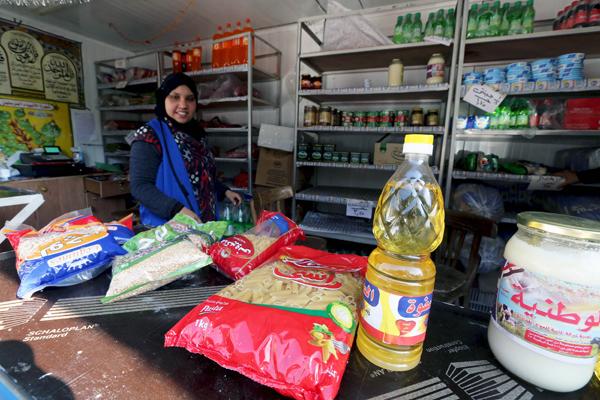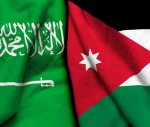You are here
Shelves go bare in Egypt as soaring sugar prices catch gov’t off guard
By Reuters - Oct 18,2016 - Last updated at Oct 18,2016
CAIRO — Borrowing a cup of sugar from your neighbour has rarely been so contentious in Egypt.
At supermarkets across the country sugar has all but vanished, prompting media talk of a crisis and pushing the state to rapidly increase imports despite an acute dollar shortage and soaring global prices of the sweetener.
Egypt consumes around 3 million tonnes of sugar annually, while it produces just over 2 million tonnes, with the gap filled by imports, usually between July and October when local beet and sugar cane supplies have wound down.
But traders said high global sugar prices, which surged 50 per cent over the past year, combined with a rising black market rate for dollars has made it too expensive and risky for many importers to obtain sugar in recent months.
Importers have no choice but to turn to the black market to get dollars, as banks ration meagre supplies, paying 15 Egyptian pounds or more per dollar versus an official rate of 8.8. At such rates, more and more traders say they can no longer buy.
"No one is willing to source dollars for this. It is way too expensive," one sugar trader said.
In the absence of steady imports, sugar supplies have all but dried up, shop owners, commodity traders, and producers of sugary foodstuffs told Reuters.
"It's been four weeks since we've had sugar at any of the branches," said Aly Ibrahim Aly, a manager at Metro Market, one of Egypt's largest supermarket chains.
Other shops across Cairo told Reuters they were getting just a small fraction of their needs, with stocks sold out within the hour they arrive as customers fight over bags that have doubled in price in recent weeks.
"I just want to make a cup of tea and I can't," one shopkeeper said. He echoed growing complaints from the public about rising prices and shortages even as the country looks to implement further austerity measures ahead of a $12 billion IMF lending programme granted preliminary approval in August.
Blank cheque
Traders describe the current sugar shortage as partly self-inflicted, the result of delayed government reaction to conflicting policy pronouncements.
The ministry of supply said in June that the country had sugar reserves to satisfy demand for a year. In August, it reneged, saying it needed 500,000 tonnes to make it until February, the start of the next harvest.
An arm of the supply ministry bought around 225,000 tonnes of sugar in August from state-owned factories, earmarking for government outlets stocks that normally supply the private sector, traders told Reuters. The private sector has struggled to procure adequate quantities since then.
"All the sugar is being dedicated to the government subsidy programme and nothing is going to the private sector," the sugar trader said, referring to government-run supermarkets that sell subsidised sugar.
"One company basically offered us a blank cheque and said do whatever it takes to get it," he added.
Ultimately they couldn't find any, he said.
Egypt's state grain buyer GASC has issued several sugar tenders over the past two months, buying about 250,000 tonnes so far.
GASC's recent tenders have called for white, as opposed to raw, sugar in order to bypass local refinement and head straight to supermarket shelves. That cuts time but adds an $80-$100 dollar per tonne premium, traders said.
Supply Minister Mohamed Ali El Sheikh said last week that Egypt had enough sugar stocks to cover demand for four months — but the manager of one government-run supermarket told Reuters on Tuesday that he had been out of stock for four days.
Related Articles
CAIRO — "Any rice?" says the woman, leaning into a shop in Cairo and brandishing a green smartcard that carries her family's food credits.
CAIRO/ABU DHABI — Cairo grocer Bakr Atef has stopped selling sugar since authorities seized his stocks last month, accusing him of hoa
ABU DHABI/CAIRO — Rattled by stringent new import rules, Egypt's wheat suppliers boycotted en masse a state tender on Tuesday, pushing the w

















